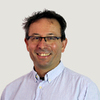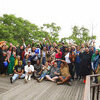Lecture calls for universally dignified and equal healthcare access for Africa
09 September 2025 | Story Lyndon Julius. Photos Lerato Maduna. Read time 8 min.
On 1 September, the University of Cape Town (UCT)’s Faculty of Health Sciences’ Pan-African Health Sciences Forum (PAHS) hosted its annual Global Health Lecture under the pressing theme: “Universal Health Access for Africa: Where are we now?”
The Wolfson Lecture Theatre was filled with students, academics, and healthcare professionals eager to engage with keynote speaker, Dr Tlaleng Mofokeng, United Nations (UN) special rapporteur on the right to health, whose address set the stage for an evening of impactful discourse and reflection.
Dr Mofokeng, affectionately known as Dr T, began not with statistics, but with her journey. She spoke of surviving apartheid South Africa as a child, navigating trauma, and later working as a physician and human rights defender at the UN.
Her message was clear: universal health access cannot be reduced to hospital beds, clinics, and budgets – it must centre on dignity, equity, and human rights.
“Health is not just about access to facilities,” Mofokeng said. “It’s about safe water, nutritious food, healthy workplaces, and the ability to live with dignity. We must remember that the right to health is solution oriented. When realised, it enables us to participate in the economy, access education, and live fully human lives.”
Her six-year tenure at the UN was defined by her push for the “restoration of dignity” as a guiding principle for health systems. From maternal care in rural India to community-run clinics for transgender people in Brazil, she pointed to global examples where dignity is the first step towards better outcomes.
Naming power, confronting inequality
Throughout her lecture, Mofokeng emphasised that healthcare is always about power – who has it, who does not, and how it shapes access to care.
She called out discriminatory practices that persist in African health systems – from requiring proof of address for contraception to the stigmatisation of sex workers, LGBTQ+ people, migrants, and people with disabilities.
“Health is not just about access to facilities. It’s about safe water, nutritious food, healthy workplaces, and the ability to live with dignity.”
“It’s not about vulnerable people, but vulnerable situations created by systems of inequality,” she affirmed. “If we are serious about universal health coverage, we must dismantle these barriers and centre the lived realities of those most affected.”
She warned against administrative “gymnastics” that make care more complicated to access, stressing that bureaucratic hurdles often translate directly into worsened health outcomes.
Panel reflections: translating vision into action
Following the keynote, a panel of distinguished academics deepened the conversation. UCT’s Professor Susan Cleary, Professor Salome Maswime, Professor Mpiko Ntsekhe, Professor Lydia Cairncross, and Deputy Vice-Chancellor for Transformation, Social Responsiveness and Student Affairs Professor Elelwani Ramugondo, alongside United Kingdom public health expert Professor Edward Kunonga, reflected on the challenges and opportunities in achieving universal health access.
Discussions touched on the National Health Insurance (NHI), the balance between private and public providers, and the importance of strengthening community health workers, who are often the backbone of care in resource-limited settings.
The consensus was that dignity and solidarity, as Mofokeng urged, must shape not only policy but also daily practice in clinics, wards, and consultation rooms.
The vice-chancellor’s charge
In his address, UCT Vice-Chancellor Professor Mosa Moshabela underlined the lecture’s importance in UCT’s global health mission.
“What Dr Tlaleng Mofokeng has reminded us [of] is that health is fundamentally about humanity. As a university, our responsibility is not only to pioneer medical technology and research, but also to lead the way in ensuring that innovation translates into equitable access,” Professor Moshabela said.
He noted that the Global Health Lecture is more than an academic event. It creates a platform for UCT to make meaningful contributions to Africa’s health future.
“We cannot afford to treat universal health access as an abstract goal. It is urgent; it is personal; and it is African. This lecture compels us to act with courage and imagination.”
Lessons from the frontlines
Mofokeng’s lecture was punctuated by practical examples that resonated deeply with attendees. She described community health workers in South Africa, who notice when children drop out of school or when mothers struggle to conceal pregnancies. Their vigilance, she argued, embodies how dignity can be centred in practice.
She also cautioned against complacency in the face of inequality:
“UCT is one of the biggest pockets of excellence globally, period. Yet within South Africa, we have deep-seated inequality. Our challenge is to ensure that excellence does not coexist with exclusion.”
“But if we accept our role as defenders of dignity and rights, we can lead the paradigm shift towards equity.”
In perhaps her most urgent appeal, Mofokeng called on clinicians to see themselves as human rights defenders, not just providers of treatment.
“We often assume health is run by lawyers, not doctors. But if we accept our role as defenders of dignity and rights, we can lead the paradigm shift towards equity,” she said.
She urged healthcare professionals to rethink traditional notions of calling, warning against a culture that “breaks” young doctors without rebuilding them. Instead, she called for a profession rooted in solidarity, empowerment, and innovation.
Universal health access as solidarity
As Africa moves towards the post-2030 agenda, with the Millennium Development Goals and Sustainable Development Goals still unfulfilled, Mofokeng stressed that universal health coverage must be seen as a matter of solidarity.
“True solidarity is unconditional. It is not about what other countries did for us 30 years ago. It is about recognising our shared humanity and shared destiny, and acting accordingly.”
She cautioned against reliance on external donors, highlighting the need for African nations to be self-sustaining in health financing and resource allocation.
Closing reflections
The lecture concluded with remarks from Professor Graham Fieggen, the director of the Neuroscience Institute; and Professor Digby Warner, the director of the Institute of Infectious Disease and Molecular Medicine, who underlined the importance of joining high-level policy with ground-level realities.
 This work is licensed under a Creative Commons Attribution-NoDerivatives 4.0 International License.
This work is licensed under a Creative Commons Attribution-NoDerivatives 4.0 International License.
Please view the republishing articles page for more information.
Faculty of Health Sciences News

Professor Anthony Figaji, head of Paediatric Neurosurgery at the University of Cape Town (UCT) and Red Cross Children’s Hospital, has been inaugurated as President of the International Society for Paediatric Neurosurgery (ISPN).
01 Dec 2025 Republished



































